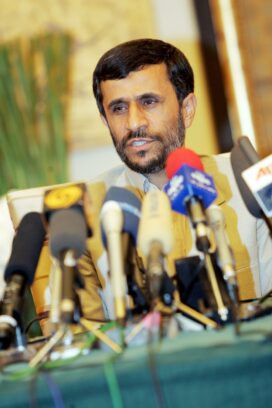Facts about Mahmoud Ahmadinejad
Mahmoud Ahmadinejad Biography
In August of 2005 Mahmoud Ahmadinejad was sworn in as the president of the Islamic Republic of Iran. Trained as an engineer, Ahmadinejad entered the political arena after the Islamic Revolution of 1979. He joined the Revolutionary Guard and, according to some reports, worked covert operations in the 1980s during Iran’s war with Iraq. After four years as a provincial governor (1993-97), Ahmadinejad became a lecturer at Tehran’s University of Science and Technology. He kept his hand in politics and was elected mayor of Tehran in 2003. He was not well known internationally until June of 2005, when he won Iran’s presidential election. It is widely held that Ahmadinejad’s support comes in part from those who oppose U.S. foreign policy, and early on President Ahmadinejad’s rhetoric matched his promises to defy the U.S., most notably on the issue of Iran’s plans for nuclear technology. He made headlines in 2005 and earned a United Nations rebuke when he publicly opined that Israel should be “wiped off the map” and later described the Holocaust as a “myth.” Ahmadinejad won re-election in 2009 against former prime minister Mir-Hossein Mousavi, but Mousavi supporters refused to accept the results and took to the streets in mass demonstrations; an official investigation into the election was called for by Iran’s supreme leader, Ayatollah Ali Khamenei, but Ahmadinejad emerged still in power. Limited to two terms by Iran’s constitution, he was succeeded in 2013 by Hassan Rouhani (Ahmadinejad had supported Rouhani’s opponent, Esfandiar Rahim Mashaei).
Extra credit
Soon after he took office, questions were raised about Ahmadinejad’s role with the radical student organization that seized the U.S. embassy and held its 53 occupants hostage from 4 November 1979 until 20 January 1981; some former hostages claimed he was one of their captors, a claim denied by Ahmadinejad… In December of 2005 it was reported that Ahmadinejad had ordered a ban on “western” music, a move reminiscent of Ayatollah Khomeini’s 1979 ban on music.

